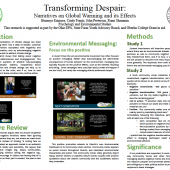
Ezimora et al JSE Nov 2015 Hope Issue PDF share: Recommend on Facebook Tweet this
Continue Reading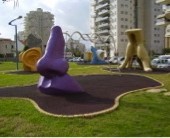
Abstract: Recent sustainability education theorists have identified a gap in the research literature regarding sensory entanglement and wonder in sustainability education. Sensory entanglement and wonder are requisite because they bring valuable shifts supporting a more critical and transformative kind of sustainability education by (1) awakening a compassionate connection with the living world, (2) nurturing alternative epistemologies, (3) providing a strengthening function for sustainability educators and their co-learners, for stamina and ongoing engagement, and (4) generating sustainability agency and an active and authentic hope to sustain a sense of the possible in the midst of the dire. This article focuses on how awakening the senses to foster a sense of wonder can nurture grounded, authentic, active hope and agency in sustainability education. It is authored collaboratively by sixteen graduate course participants and faculty co-researchers who discuss interrelated theories pointing to a need to foster senses of wonder in sustainability education. The researchers work in research teams to explore experiential and sense-based hope- and agency-building curricula. Findings include activities and reflections across the five senses as well as with the sixth sense, intuition. Sensing, listening, intimate observing, imagining, feeling, entangling, and wondering can shift unsustainability epistemologies and transform human and cultural engagement. The sense of sound can be immersive and resonant, lending learners to relational and multispecies sensing. Scent can catalyze wonder and inspire experiential, holistic growth and integration of time. Savoring in the sense of taste can extend learners from survival to joy, offering opportunities for mindfulness that can connect cultural and biocultural mutualisms and collaborative sustainability agencies. Pattern sensing for similarity using the visual sense of wonder can support connected knowing and ecological vision. The sense of touch can offer a continuous and mutual comfort and belonging. Visual pattern and texture scavenger hunts can cultivate these sustainability sense capacities. The sixth sense, intuition, opens learners to imaginative, transformative, and connective ways of knowing as place and planet, stimulating hope-giving, integrative sustainability agencies.
Continue Reading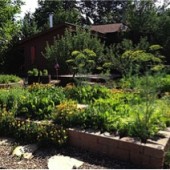
Abstract: This interview-based article discusses how permaculture philosophy, practice, and education represent important avenues for sustainability-oriented hope and agency. The author interviews Permaculture Design Certification instructors from the Central Rocky Mountain Permaculture Institute’s two week long course held in summer 2015. Interviewees offer perspectives on permaculture as a well-founded and well-developed philosophical approach to sustainability, as a framework for practical application of sustainability principles, and as a foundation for community organizing and development. The author seeks to inspire sustainability educators and practitioners to consider permaculture as an important vehicle for teaching, learning, and doing sustainability.
Continue Reading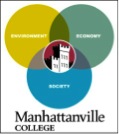
Abstract: This article reports on an autoethnography in which eight researchers interrogate their experience in a cohort-based education for sustainability advanced certificate program for evidence of practices that generated hope and agency, and worked against the hopelessness that can come with studying problem as big and seemingly insurmountable as sustainability. They found that learning about and tackling wicked problems as a community of practice undermined debilitating pessimism and generated productive hope and collective action.
Continue Reading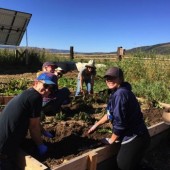
Abstract: Offers a brief introduction to the Journal of Sustainability Education issue focused on hope and agency, highlighting hope and agency as essential aspects of sustainability education in the Anthropocene.
Continue Reading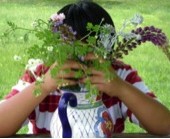
Abstract: Moving beyond the despair resulting from what appears to be a tipping point of life systems due to climate change, this narrative presents a possibility for regenerative hope. The article begins by discussing an emergent typology of hope that includes hokey hope, resolute hope, mythical hope, patient hope, hope deferred, sound hope, authentic hope, critical hope, and transformative hope. Drawing upon this typology, a model for regenerative hope is developed with the following features: care and conviviality, experience and engagement, imagination and joy, risk-taking and belief in possibilities, and critical sensibilities and transformation. Series of photos and voices of youth from a low-income middle school actively engaged in the learning gardens are presented as practical examples of pedagogy of action and agency manifested as regenerative hope.
Continue Reading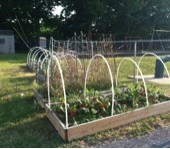
Abstract: Opportunities abound for educators to rethink the way teaching and learning occurs for today’s students. Taking time to focus on learning outdoors, on making healthy choices, and on fostering a sustainable learning and living environment is transforming the way schools work across the nation. Through the lens of the three pillars of the U.S. Department of Education Green Ribbon Schools (ED-GRS), this article described examples from a range of school sites and includes the voices of administrators, teachers, and staff in revisiting how we teach, learn, and lead. Helpful tips regarding school sustainability round out the article to provide “next steps” for the reader.
Continue Reading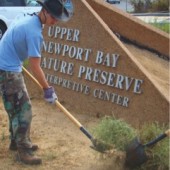
Abstract: If we are to educate the coming generation about the threats to the environment and the consequences of the excesses of human actions on our planet, educators need to consider critical pedagogy as a means of engaging students in thought and action. This article examines texts from prominent sustainability advocates and researchers, analyzing how they frame sustainability on a spectrum of hope that will then enable educators to address sustainability education with a realistic sense of agency while preparing students to meet the challenges for a sustainable future. Suggestions for pedagogical applications are included for each category across the spectra of hope.
Continue Reading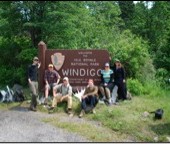
Abstract: For five years we taught a field philosophy course in Isle Royale National Park to study if and how wilderness experience, coupled with a care-based and community-focused curriculum in place-based ecology and environmental ethics, could help students develop empathy for nonhuman nature. Empathy for the natural world can positively impact environmental attitudes and behaviors; empathy also plays an important role in citizenship skills and actions. Using a constructivist grounded theory qualitative analysis of student pre-, on-, and post-course writing, we found that students consistently demonstrated shifts in empathetic awareness and individual agency all years but one, when the course size was larger. Several factors impacted the development of an empowered sense of self and moral agency, including: the use of narrative and storytelling in the curriculum, the inclusion of student-driven choice-based assignments, and group size. Experiential environmental learning focused on the development of empathy can provide a meaningful path for students to bridge moral agency, environmental attitudes and knowledge, and citizenship skills and behavior so they can connect their values with action These results have consequential impacts for sustainability learning and action.
Continue Reading